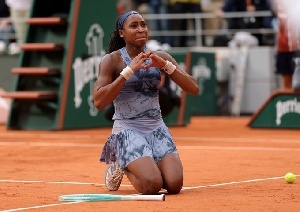Opinions of Thursday, 15 May 2025
Columnist: Okokuseku
When a Small Bottle of Water Costs GHS 30: What’s Really Happening in Ghana?
When a Bottle of Water Costs GHS 30: What’s Really Happening in Ghana?
It wasn't the first time I'd found myself silently wondering, What is really happening in Ghana? But this time, the moment felt particularly telling.
I was seated at a small café — one of the many springing up at fuel stations across Accra. This wasn't a fancy or centrally located establishment, just a modest place to grab a quick meal. The heat that day was intense, and naturally, I asked for a small bottle of water to cool down.
To my surprise, the server brought the water in a glass bottle, not the standard PET plastic bottle we’ve all come to expect. When I asked for the usual version, I was told — politely — that glass was the only option available. So I accepted it, finished my meal, and asked for the bill.
That’s when the shock came.
The most expensive item on the bill wasn’t the food — it was the small bottle of water, priced at GHS 30 (roughly $2 USD). And just to be clear, this wasn’t some imported mineral water from France or Italy — it was a local Ghanaian brand, the kind you’d typically expect to cost a fraction of that price.
Outrageous? Yes. But what struck me even more was the look on the server’s face when I questioned it. He wasn’t defensive — just quietly apologetic, as if to say, I know, but I can’t do anything about it.
Now, let me be clear: I am fully in favour of a free market. Businesses have the right to set their own prices. But there are moments — like this one — where something simply feels fundamentally wrong. Charging the equivalent of $2 for a small bottle of water, especially in a no-frills location, doesn’t just raise eyebrows — it raises questions.
Who is looking out for the everyday consumer? Should there not be some form of regulation or guidelines to ensure fairness, especially for basic necessities like water?
This isn’t about controlling business — it’s about protecting people from exploitative pricing in situations where they have no real alternatives. When essential goods are priced like luxury items, we need to stop and ask: What kind of economy are we really building?
I believe it’s time for the authorities and consumer protection agencies to step in — not to cap prices arbitrarily, but to establish fairness and accountability. Because when the cost of a bottle of water begins to feel like a luxury tax, something is clearly broken.











